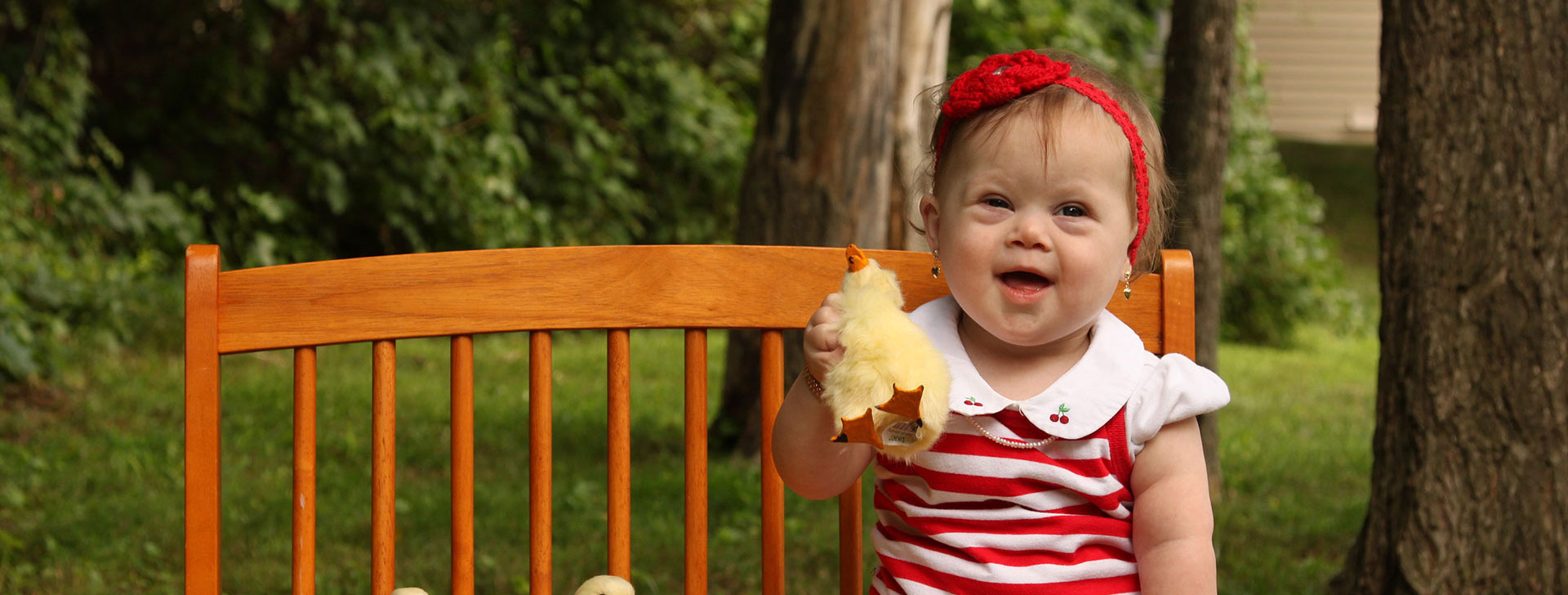J.W.
It was a difficult pregnancy which I attributed to my advanced age of forty-four, and that my innards had not carried a baby for fifteen years. Being bed-ridden as a preventative measure for slowing the contractions gave me plenty of time for reading pregnancy books as well as baby books. I skipped over the “what if” chapters because those things the authors were writing never happen to me. I was unfamiliar with the concept of emunah at that point in my new religious observance, so we can chalk up my misdirected philosophy to one of cockiness if not downright arrogance. In hindsight, I am still glad I didn’t read the chapters that I would have previously labeled as “the chas v’shalom” chapters.
Skipping over the chapters on possible complications meant that the first time I heard the term Down syndrome was in the operating room. I had spinal anesthesia so that I could be awake during the Caesarean birth of our new baby and my husband was at the head of the operating table. When Dr. O’Sullivan, the high-risk pregnancy obstetrician, lifted our brand new baby out of me, she announced with animated glee, “Congratulations, you have a baby girl, (pause), with Down syndrome.” I rolled my eyes upwards towards my husband and he smiled as he questioningly shrugged his shoulders. I asked, “What does that mean?” Dr. O’Sullivan replied that it meant she needed to call in a pediatrician and send our new baby to PICU. I inquired, “Is that Mongoloidism?” to which Dr. O’Sullivan replied that we don’t use that term any more. I suppose I was showing my ignorance as much as my age, but we had a neighbor with a Mongoloid child back in the 1950’s and that was my last exposure to knowledge of Down syndrome.
It was only hours after transferring from the recovery room (hah! what a misnomer!) to a private hospital room when a frumpy-looking doctor pulled up a chair next to my bed and introduced himself. “Hello, my name is Dr. Benke and I am a geneticist. While we have to wait to get the DNA mapping results, we are quite sure your daughter has Down syndrome based on her floppiness, flat nose, and thickened neck.”
I stared at this man with no idea of what he was talking about. Without further explanations or taking note of my look of bewilderment, Dr. Benke continued, “You do not have to give your baby away. Some parents decide to keep their babies.” Bewilderment quickly turning to shock as I screamed, “I’m not giving my baby away! Why would I do that! What are you talking about?!”
In his dry monotone, Dr. Benke said, “Look, these babies have medical conditions associated with the syndrome and they have low IQ, but nowadays, we encourage the parents to not put them up for adoption. We provide good medical care and counseling.”
I blurted out that I didn’t need counseling, I needed him to leave my room. Finally realizing that maybe he hadn’t taken the best approach, he began a new tactic: “Look, think of your baby as a car: she’s not a Yugo, she’s a Chevrolet.”
We saw Dr. Benke one last time when we had an office visit two weeks later to get the results of the genetic testing. I didn’t keep the follow-up appointments nor his recommendations for counseling. I later used the mental imagery exercise of erasing the picture of a Chevrolet in my mind and I replaced it with a Cadillac. I love my Cadillac: comfortable, dependable, beautiful, and yes, a luxury that I am blessed to have.

